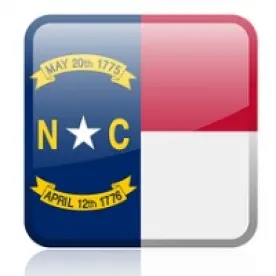GOVERNOR TOURS STATE IN DEFENSE OF ABORTION VETO
On Saturday, Governor Roy Cooper says he will veto the bill that would outlaw most abortions after 12 weeks. He intends to sign the veto during a pro-abortion rally in downtown Raleigh.
In the meantime, Cooper made stops in Wilmington and the area around Charlotte in an effort to change at least one vote on the abortion bill. Republicans will fall short of the necessary three-fifths majority to override the veto if they lose one legislative vote, but Republican legislators have declared their confidence in their ability to override the veto.
With the Governor’s expected veto on Saturday, the legislature could take it up again next week. To override Cooper's veto, they will need to keep their supermajorities in the House and Senate united. If they do, the new abortion law will go into effect on July 1.
Read more by Spectrum News (Duncan)
CROSSOVER AND THE LEGISLATION LEFT BEHIND
Last week’s crossover deadline for the North Carolina General Assembly left a number of bills ineligible for consideration by the legislature during the remainder of the long session and the 2024 short session. To remain alive in the long session or the 2024 short session, bills that do not involve appropriations, revenue, or are not a part of a legislative study had until Thursday, May 4, to pass their originating chamber. Legislators can revive bills that did not make crossover, but doing so requires extensive cooperation and influence among lawmakers.
A sampling of bills left behind following the crossover deadline are:
-
House Bill 148would have reduced the legal limit for driving while intoxicated from .08 to.05. Mothers Against Drunk Driving, the North Carolina Sheriff's Association, the Freedom Caucus in the General Assembly, and Insurance Commissioner Mike Causey all supported the legislation.
-
Advanced practice registered nurses would have been given full practice authority under Senate Bill 175 and its companion House Bill 218. The legislation is essential to increasing access to healthcare in the state, which was at the center of discussions to expand Medicaid.
-
Senate Bill 254 mandated the maintenance of a record of personnel decisions that were subject to public disclosure by state agencies, local governments, school boards, public health authorities, public hospitals, sheriffs, water and sewer authorities, and registers of deeds.
-
The Hate Crimes Prevention Act, House Bill 596, was introduced in April to broaden the definition of a hate crime to include offenses motivated by a person's gender, sexual orientation, or physical or mental disability and to increase the penalty for such offenses from a misdemeanor to a felony.
-
A minimum wage increase was proposed by House Bill 541 and Senate Bills 440and 447. The state's minimum wage, which has remained at the federal minimum of $7.25 since 2009, has been the subject of years of Democratic attempts to raise it, all of which have failed.
Read more by The Center Square (Skinner)
STATE FINANCIAL FORECAST
Following the receipt of key April 15 individual and corporate income tax payments and returns by the North Carolina Department of Revenue, North Carolina Office of State Budget and Management, and General Assembly staff released an updated revenue forecast for the state on Thursday. The figures will influence how Republican legislators in charge of the General Assembly consider spending, saving, and tax cuts as they craft a new two-year budget over the next few weeks.
The state's general fund is expected to receive $33.62 billion in revenue for the fiscal year ending June 30, which is $136 million less than the initial consensus forecast in February. The governor's proposed budget called for spending close to $33 billion next year.
Last month, the House passed a budget that would spend $29.8 billion during the next fiscal year, consistent with the spending caps agreed to by House and Senate Republican leaders in March.
The Senate is expected to release and vote on its budget proposal next week. The final budget proposal will then be negotiated between the two chambers and sent to Governor Roy Cooper.
Read more by AP News (Robertson)
PRIOR AUTHORIZATION LEGISLATION
Although frustrating to some patients and physicians, “prior authorization” or “utilization review” is a necessary tool for healthcare payors to determine whether particular treatments are appropriate and should be paid for.
Doctors claim they are spending too much time on convincing insurance companies to cover the cost of treatment, while health insurers point out that prior authorization and utilization review shield patients from medical mistakes and overpriced, unnecessary treatment.
North Carolina legislators have taken up the issue and introduced House Bill 649, which would overhaul the procedure. After receiving unanimous support from the House on April 26, the bill is currently awaiting consideration by the Senate.
The following is a list of the bill's key provisions:
-
Consultation with the physician: Within five business days of receiving the insurer’s notification, an insurer is required to consult with the patient's physician before making a decision if they have any doubts about the medical necessity of a treatment or service.
-
Discussion with the physician: An insurer is required to contact the patient's physician within five business days of any doubts about the medical necessity of a treatment or service and to give the physician a chance to discuss the choice.
-
Time frames for reviews: After receiving all relevant data, insurers must make decisions about urgent medical services within 24 hours and non-urgent medical services within 48 hours.
-
Only physicians can perform reviews: Reviewers must be licensed North Carolina physicians with experience in the relevant medical specialty or treatment in order to approve or deny medical treatments on behalf of insurers.
-
Physician exemptions: If a doctor has a prior authorization approval rate of 80% or higher for a given health care service over the previous 12 months, they are exempt from the prior approval requirement. This law is sometimes referred to as a "gold card" law.
Read more by NC Health News (Crouch)
CONCEALED-CARRY PERMITS LEGISLATION
Legislative leaders have stated that they will not take any action to repeal North Carolina's concealed-carry permit requirements. In the past week, House Bill 189, titled "Freedom to Carry NC," passed two committees and would have allowed gun owners to carry concealed handguns. But without a vote, it was later struck from the House's calendar on May 3.
The most recent version of the bill would maintain education requirements for gun owners who wish to carry a concealed weapon, but without a permit process, law enforcement agencies are concerned they would not be able to identify anyone who was lawfully carrying a gun.
The change was opposed by some Republican lawmakers, according to House Speaker Tim Moore on Thursday. Also speaking out against the bill was the State Sheriffs' Association. Representative Keith Kidwell (R-Beaufort), the bill’s sponsor, agreed to withdraw it for the time being.
Senate President Phil Berger expressed doubt that his chamber would consider the bill. Moore and Berger expressed their satisfaction with the most recent action to eliminate the need for a permit to purchase a handgun. Senate Bill 41 was passed into law after lawmakers voted to override Governor Roy Cooper's veto on March 29.
“We’ve done away with the pistol purchase permit, which was the number-one goal of many of the gun rights groups for a long period of time,” Berger told reporters. “I just don’t know if there’s a need for us to delve into additional issues dealing with guns.”




 />i
/>i

